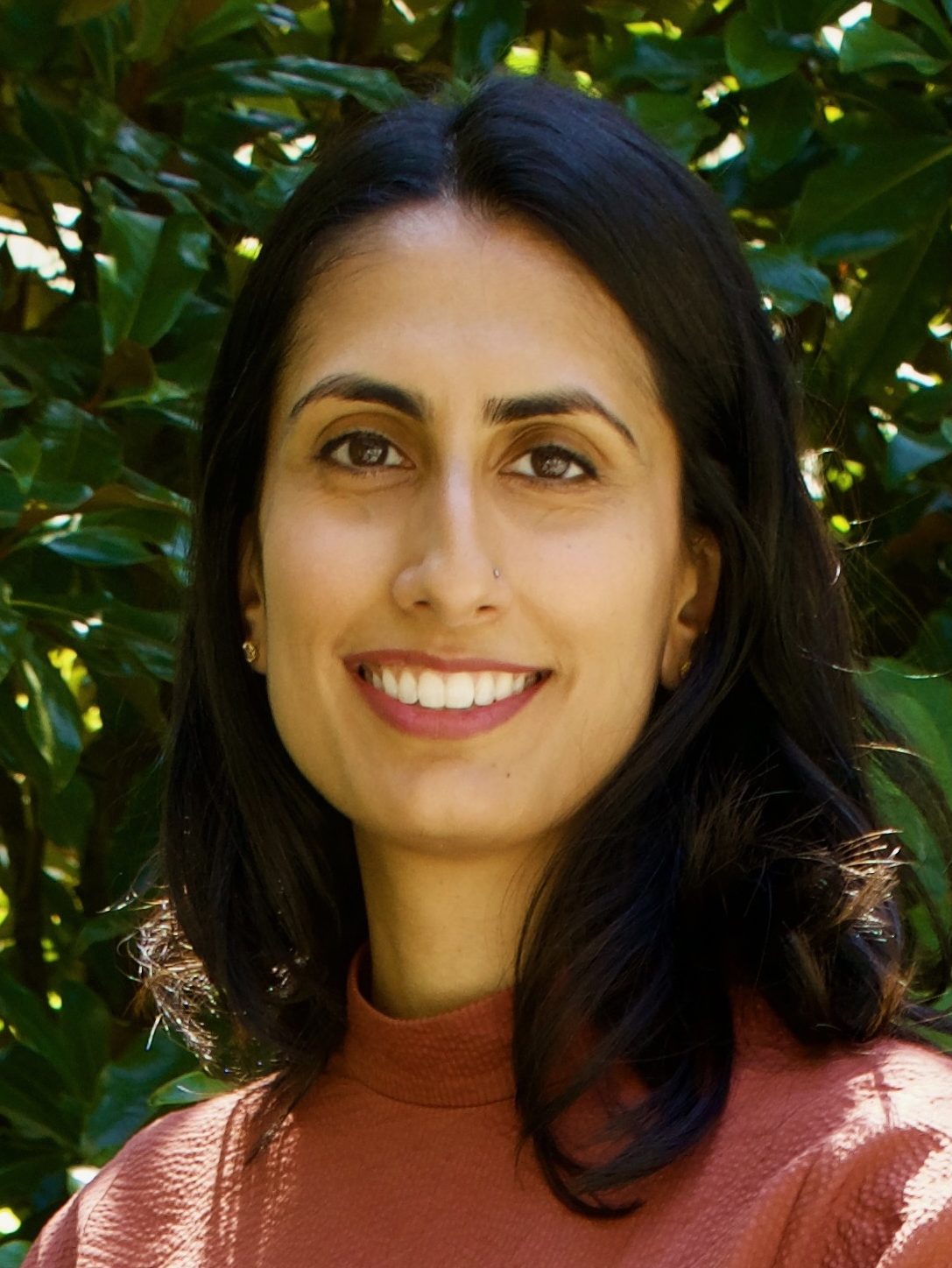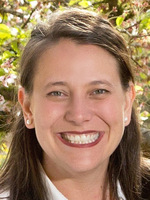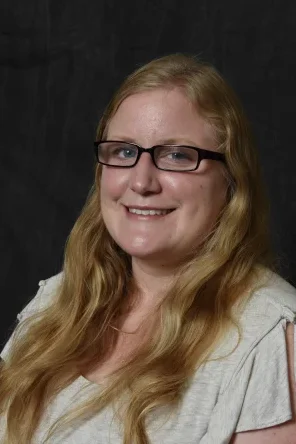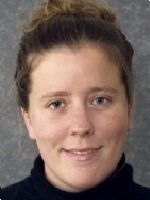These are bios for UW Health Services PhD alumni who work as researchers. Contact us to learn more about how you can potentially connect with these alumni for advice, mentorship, or open positions at their organization.
Alex Bohl | Data Analytics, Mathematica Policy Research
Researcher, Data Analytics, Mathematica Policy Research

Alex Bohl began his studies in the Health Services PhD program in 2007. Bohl pursued an area of emphasis in Informatics, Economics and Evaluation Sciences, and worked closely with Paul Fishman to complete his dissertation, “The cost implications of fall-related injuries,” before graduating in 2011.
At present, Bohl works as a Researcher in Data Analytics at Mathematica Policy Research. Bohl works on projects related to statistical modeling of hospital quality, the cost and quality of care for Medicaid beneficiaries using long-term services and supports (LTSS), establishing bundled payment methodologies, and risk-adjusting managed LTSS plan rates.
Alison Brenner | Cecil Sheps Center for Health Services Research, University of North Carolina
Deputy Director of Research, Decision Support Lab, Cecil Sheps Center for Health Services Research, University of North Carolina

Alison Brenner began her studies in the Health Services PhD program in 2010, and was an AHRQ/NRSA trainee while in the program. Brenner pursued an area of emphasis in Evaluation Sciences, and worked closely with Dave Grembowski and John Inadomi to complete her dissertation, “Development and assessment of algorithms for tailoring or targeting delivery of patient decision support in two disease models,” before graduating in 2013.
After graduation, Brenner worked as a Postdoctoral Fellow at the University of North Carolina (Chapel Hill) Cecil Sheps Center for Health Services Research, where her primary research focus was in patient decision support and values clarification for cancer screening and other preventive care decision making.
At present, Brenner works as Deputy Director of Research for the Decision Support Lab at the University of North Carolina (Chapel Hill) Cecil Sheps Center for Health Services Research.
Ammarah Mahmud | Kaiser Permanente Washington Health Research Institute
Research Associate, Kaiser Permanente Washington Health Research Institute

Ammarah’s research interests include health policy and program evaluation, social determinants of health, and health care delivery. She graduated from the PhD program in 2024 with an area of emphasis in Evaluateive Sciences and Statistics.
Prior to entering the doctoral program in 2019, she worked as a Policy Analyst at RAND in Washington DC. She earned her MPH from Emory University with a concentration in Health Policy.
From 2019-2021, she was an AHRQ NRSA T-32 Pre-Doctoral Trainee. Currently, she works as a Research Assistant with Kaiser Permanente Washington Health Research Institute. Her dissertation evaluates the impact of a pilot social health integration program on patient-reported social needs, utilization, and costs in two Kaiser Permanente Washington clinics.
Amy Hagopian | Health Systems and Population Health, University of Washington
Professor, Department of Health Systems and Population Health, University of Washington

Amy Hagopian began her studies in the Health Services PhD program in 2000. Hagopian pursued an area of emphasis in International Health, and worked closely with Carolyn Watts to complete her dissertation, “The International Migration of Physicians to the US,” before graduating in 2003.
Hagopian was Program Director of the University of Washington Department of Health Systems and Population Health COPHP program for eight years (through 2020), and is a Professor in the University of Washington Department of Health Systems and Population Health. Hagopian is teaching four courses: 1) a new “capstone startup course” for MPH students across the school, 2) Public Health Uganda, a study abroad course with research projects associated with Makerere University faculty, 3) War and Health, 4) Public Health Planning, Advocacy & Leadership Skills. She’s designing a new course on homelessness, and working with the Center for Health Innovation & Policy Science (CHIPS) as chair of the Housing and Health working group.
Hagopian’s research interests focus on how the maldistribution of power undermines health. Therefore, she focuses on homelessness, war, and the migration of health workers from poor countries to rich ones.
Amy Bonomi | Children and Youth Institute, Michigan State University
Director, Children and Youth Institute, Michigan State University

Amy Bonomi began her studies in the Health Services PhD program in 2001, after completing her Health Services MPH in Social and Behavioral Sciences at the University of Washington. In the PhD program, Bonomi pursued an area of emphasis in Population Health and Social Determinants, and worked closely with Diane Martin on her dissertation, “Rural and urban women’s interpretations of intimate partner violence: The role of language in case finding,” before graduating in 2004.
Bonomi is Director of Michigan State University’s Children and Youth Institute, which comprises 150 staff and 17,000 volunteers across all 83 Michigan counties serving children and youth ages 0-19. Bonomi leads a visioning process to expand partnerships, build resources, support leadership development, and measure and communicate impact to policymakers on key issues affecting Michigan youth such as inclusion, mental health, leadership development and civic engagement.
From 2013-2019, as Chair of MSU’s Human Development and Family Studies department, coinciding with MSU’s initiative to improve federal awards and with MSU’s capital campaign, Bonomi led her department in a significant increase in federal grant dollars (648%) and philanthropy (997%), recruitment of nationally renowned faculty, and sharpening of graduate and undergraduate programs.
Bonomi serves as an advisor in MSU’s Office of the Provost for other administrators leading their units through change and has led a university-wide study of the needs of faculty and academic staff.
Bonomi has developed programs to support women academics interested in leadership. She co-founded MSU’s Women’s Leadership Institute, which provides evidence-based programs and networking opportunities for women students, staff, faculty and alumni. She is co-editing a forthcoming book, “Women Leading Change in Academia: Breaking the Glass Ceiling, Cliff and Slipper” (Cognella Publishers, October 2019), which convenes the perspectives of diverse women academic leaders on power structures and implicit bias in the academy, strategic planning, leading on the glass cliff, through resistance and in the face of the double bind, and key life skills including negotiation, networking and mentoring.
Anne Kirchhoff | Pediatrics, University of Utah
Assistant Professor, Pediatrics, University of Utah

Anne Kirchhoff began her studies in the Health Services PhD program in 2005, and was a NCI R25 and AHRQ trainee while in the program. Kirchhoff pursued an area of emphasis in Biobehavioral Cancer Prevention and Control, and worked closely with Tom Wickizer to complete her dissertation, “Late Term Effects and Employment Outcomes for Cancer Survivors,” before graduating in 2009.
At present, Kirchhoff works as an Assistant Professor of Pediatrics at the University of Utah and is an investigator at the Huntsman Cancer Institute, Cancer Control and Population Sciences.
Kirchhoff is funded by the Intermountain and Primary Children’s Hospital Foundation to assess the long-term health care needs and costs of Utah childhood cancer survivors, with the goal of improving care delivery and developing education programs to link survivors with appropriate risk-based health care. She recently received a Hyundai Hope on Wheels foundation grant to develop and test an intervention to provide pediatric cancer patients with survivor care plans following the end of therapy. Kirchhoff also has National Cancer Institute funding to conduct analyses using national survey data to evaluate quality of life outcomes for adolescent and young adult cancer patients.
Antonia Bennett | Department of Health Policy and Management, University of North Carolina
Associate Professor, Department of Health Policy and Management, University of North Carolina

Antonia Bennett began her studies in the Health Services PhD program as an AHRQ/NRSA trainee. Bennett pursued an area of emphasis in Evaluation Sciences, and worked closely with Donald Patrick to complete her dissertation, “Comparison of 7-day and repeated 24-hour recall of symptoms and impacts of disease.” Following graduation in 2010, she pursued a post-doctoral fellowship in outcomes research at Memorial Sloan-Kettering Cancer Center, New York, NY.
At present, Bennett works as an Associate Professor at the University of North Carolina at Chapel Hill, in the Department of Health Policy and Management, and is a member of the UNC Cancer Outcomes Research Program. In 2014 she received the International Society for Quality of Life Research (ISOQOL) Donna Lamping New Investigator Award. Bennett is Faculty Director of the UNC Patient-Reported Outcomes Core and is Director of the Measurement Core of the Palliative Care Research Cooperative Group. In addition to her work on methods for patient-reported outcome data capture that are reliable and accessible to all participants, she is bringing a measurement perspective to emerging forms of patient-generated health data (wearables, sensors) that is needed to translate these tools from the engineering lab into clinically interpretable instruments that add value in the clinical context.
Bonnie Lind | Oregon Health & Science University (OHSU) | University of Washington
Research Assistant Professor, Oregon Health & Science University (OHSU)
Affiliate Assistant Professor, Department of Health Systems and Population Health, University of Washington

Bonnie Lind began her studies in the Health Services PhD program in 2003. Lind pursued an area of emphasis in Methods and Analysis, and worked with her advisor, William Lafferty, to complete her dissertation, “The use of complementary and alternative medicine under insurance coverage in Washington State,” before graduating in 2005.
Lind began her career by earning an M.S. from the Biostatistics Department in 1987 and worked as a Research Scientist in that department from 1989 – 2000. She is currently employed as a Research Assistant Professor at Oregon Health & Science University, where she serves as a Senior Statistician in the Center for Health Systems Effectiveness. Lind is also an Affiliate Assistant Professor in the Department of Health Systems and Population Health at the University of Washington.
Blair Darney | Obstetrics & Gynecology, OHSU School of Medicine
Associate Professor, Department of Obstetrics & Gynecology, OHSU School of Medicine

Blair G. Darney began her studies in the Health Services PhD program in 2007, and was an AHRQ T32 trainee her first 2 years in the program. Darney received a pre-doctoral award from ITHS TL1 program her third year. She pursued an area of emphasis in Evaluation Sciences, and worked closely with Drs. Marcia Weaver, Emmanuela Gakidou, and Sarah Prager to complete her dissertation, “Program evaluation in reproductive health: Prospective and retrospective applications,” before graduating in 2012.
Darney was an AHRQ Postdoctoral Fellow in the Oregon Health & Science University (OHSU) Departments of Medical Informatics and Clinical Epidemiology and Obstetrics/Gynecology. She was the recipient of the Outstanding Researcher in Training Award from the Society of Family Planning in 2012 for part of her dissertation work.
Darney was awarded 2 grants from the Society of Family Planning Research Fund to focus on abortion provision in Mexico, where she was based for three years at the Instituto Nacional de Salud Publica, in Cuernavaca, where she maintains an affiliation.
Blair is an Associate Professor in the OB/Gyn department, Family Planning Section, at OHSU and in the OHSU-Portland State University (PSU) joint School of Public Health, Health Systems & Policy. She has an active portfolio of externally funded research focused on contraceptive services in safety net clinics, Latina reproductive health outcomes, and abortion in Mexico.
PublicationsBenjamin Keeney| Orthopedics, Dartmouth
Faculty Member, Geisel School of Medicine, Dartmouth

Benjamin Keeney entered the Health Services PhD program in September 2007 and graduated in early 2012. Support came from a department NIOSH training grant and research assistant positions with Doug Conrad. Keeney pursued an area of emphasis in Occupational Health Services and focused on workers with back injuries. His dissertation was chaired by Gary Franklin and titled “Early predictors of re-injury, clinically significant weight gain, and lumbar spine surgery following occupational back injury: A prospective study of workers in Washington State.” Keeney’s dissertation work on lumbar spine surgery predictors, since published in Spine, has been described in the San Francisco Chronicle and several prominent journals and newsletters in the fields of occupational services, spine health, orthopedic surgery, and chiropractic care.
After his time at UW, Keeney was a Post-Doctoral Fellow in Orthopedics Outcomes Research at Dartmouth in 2012 and 2013. He then joined the Dartmouth faculty in 2013 in the Department of Orthopedics at the Geisel School of Medicine at Dartmouth and its affiliated hospital, Dartmouth-Hitchcock Medical Center.
In 2017, Keeney left full-time work at Dartmouth to become the Director of Health Care Research & Analytics for Berkley Medical Management Solutions, the internal data science and quality improvement group for W.R. Berkley, a Fortune 300 insurance company specializing in worker’s compensation and auto insurance. He remains on the Dartmouth faculty and continues to teach there.
Keeney’s research publications focus on total hip and total knee replacement, patient-reported measures, preoperative predictive modeling for post-surgical outcomes, provider comparisons on outcomes, orthopedic health services, occupational health services, the impact of weight loss, health insurance exchanges, health information exchanges, and medical student and resident research training. In addition to his own research, Keeney regularly collaborates with orthopedic clinicians on research and mentors several orthopedic surgery residents on their research. Lastly, he is an Advisory Board Member of Spine, the most cited Orthopedics journal, as well as of the Journal of Arthoplasty.
Ben lives near Dartmouth in Hanover, New Hampshire, with his wife and 2 daughters. Keeney is happy to discuss the field of health services, the interplay between academia and industry, and the UW PhD program, to UW alumni, current students, and prospective applicants.
Beth Devine | CHOICE Institute, University of Washington
Professor, Comparative Health Outcomes, Policy and Economics (CHOICE) Institute, University of Washington

Beth Devine began her studies in the Health Services PhD program in 2005. Devine pursued an area of emphasis in Evaluation Sciences, and worked closely with Sean Sullivan to complete her dissertation, “Evaluating the Impact of an Ambulatory Electronic Prescribing System in a Community-based, Integrated Health System,” before graduating in 2008. During her time in the program, she was supported by an AHRQ Mentored Clinical Scientist Training Award (K-08).
Devine is a Professor in the Comparative Health Outcomes, Policy and Economics (CHOICE) Institute at the University of Washington, and as an Adjunct Associate Professor in the Department of Health Systems and Population Health, Department of Biomedical Informatics, and the Department of Surgery.
Devine conducts her research program at the intersection of clinical informatics, comparative effectiveness research (CER), medication safety and quality. She served as the lead co-investigator for the Comparative Effectiveness Research Methods Core of the Surgical Care and Outcomes Assessment Program Comparative Effectiveness Research Network (PI: David Flum), where her team conducted a CER study of interventions for peripheral artery disease. She also served on the Health Information Technology Core, where she lead the research study to validate the extraction of semi-automated data from disparate electronic health records across select hospitals in Washington State. She is currently investigating the use of pharmacogenomic biomarkers in clinical practice. A second area of research interest is evidence synthesis, where she conducts meta-analyses and network meta-analyses within the Bayesian framework. She is site co-Principal Investigator of the AHRQ-funded Pacific Northwest Evidence-based Practice Center. In the Graduate Program, she teaches courses in Outcomes Research Methods and Meta-Analysis.
Prior to launching her research career, Devine practiced clinical pharmacy with advanced practice (prescribing) privileges, and served in administrative positions related to formulary management, medication safety and quality improvement, in both academic and community medical center settings. Devine completed a residency in clinical pharmacy practice at the VA Medical Center in Palo Alto, CA; and a postdoctoral fellowship in pharmacoeconomics and outcomes research at the UW CHOICE (Comparative Health Outcomes, Policy and Economics) Institute, spending one year with Roche Pharma Business, Health Economics and Strategic Pricing Group, in Palo Alto, California.
Caleb Banta-Green | Alcohol and Drug Abuse Institute, University of Washington
Research Professor, Alcohol and Drug Abuse Institute, University of Washington

Caleb Banta-Green began his studies in the Health Services PhD program in 2005, and was an AHRQ T32 trainee while in the program. Banta-Green pursued an area of emphasis in Evaluation Sciences, and worked closely with Chuck Maynard to complete his dissertation, “Opioid drug abuse treatment: Factors associated with opioid use type and retention in treatment,” before graduating in 2008.
In 2012, Banta-Green worked as the Senior Science Adviser for the Executive Office of the President, on a very focused project on overdose prevention.
At present, Banta-Green works as a Research Professor at the University of Washington Addictions, Drug & Alcohol Institute in the Department of Psychiatry and Behavioral Sciences, School of Medicine, University of Washington. He is an adjust Research Professor in the University of Washington Department of Health Systems and Population Health. He has a range of projects including clinical trials, implementation projects, building overdose surveillance capacity and technical assistance with local health departments.
Carolina Mejia | Research Associate, University of North Carolina
Monitoring and Evaluation Technical Advisor and Research Associate, MEASURE Evaluation Project, University of North Carolina (Chapel Hill)

Carolina Mejia entered the PhD Program in 2003 and pursued an area of emphasis in Health Behavior and Health Promotion. Mejia worked closely with her faculty advisor, Diane Martin, to complete her dissertation “Geography, mobility, work venue and other risk factors associated with sexually transmitted infections among female sex workers in Peru” before graduating from the program in 2010. While in the doctoral program, she received a Fogarty International Fellowship from NIH to conduct primary data collection in Peru for her dissertation.
Prior to entering the PhD program, Mejia earned her MPH in Health Services from the University of Washington in 2003.
Mejia is currently working as a Gender, and Monitoring and Evaluation (M&E) Technical Advisor and Research Associate for the MEASURE Evaluation Project at the University of North Carolina (Chapel Hill). She works in low-to middle income countries to improve methods, tools, and approaches to address health information challenges and gaps in HIV, family planning, and reproductive health; increased capacity for rigorous evaluation; improve health information systems (HIS) covering all areas, and ensure that gender is addressed and measured as a component of health programs.
She has a long-standing commitment to working with underserved and most at-risk populations in the areas of HIV/STI screening, treatment and prevention and other reproductive and sexual health issues. Mejia has successfully conducted quantitative and qualitative evaluations in various areas of healthcare, collaborating with culturally diverse, multidisciplinary teams in the U.S. and abroad, building capacity among healthcare workers, developing proposals, and managing programs to deliver value, key findings and recommendations to internal and external partners and funders.
Courtney Lyles | Medicine, UC San Francisco
Assistant Professor, Medicine, UC San Francisco

Courtney Lyles began her studies in the Health Services PhD program in 2006, and was an AHRQ T32 trainee while in the program as well as a UW Magnuson Scholar. Lyles pursued an area of emphasis in Evaluation Sciences, and worked closely with Drs. Clarence Spigner and David Grembowski to complete her dissertation, “Patient and Provider Factors, Patient-Reported Racial/Ethnic Discrimination in the Healthcare Setting, and Quality of Care in the Diabetes Study of Northern California (DISTANCE),” before graduating in 2010.
At present, Lyles works as an Assistant Adjunct Professor in the University of California, San Francisco (UCSF) Department of Medicine, Division of General Internal Medicine at San Francisco General Hospital as well as in the UCSF Center for Vulnerable Populations. Her research focuses on harnessing health information technology to improve patient-provider communication for chronic disease self-management and to ultimately reduce disparities in health and healthcare outcomes.
Colleen Daly | Global Occupational Health, Microsoft Corporation
Director, Global Occupational Health, Safety and Research, Microsoft Corporation

Colleen Daly began her studies in the Health Services PhD program in 2003, and was a NIOSH trainee while in the program.
Daly pursued an area of emphasis in Occupational Health and Safety, and worked closely with Tom Wickizer, to complete her dissertation, “Does changing work organization through telecommuting affect individual health? A focus on stress and health behavior,” before graduating in 2007.
Daly enjoys everything about the Northwest, from paddling boarding in the summer to skiing in the winter.
Cynthia R. Pearson | Social Work, University of Washington
Research Associate Professor, Social Work, University of Washington

Cynthia R. Pearson began her studies in the Health Services PhD program in 2001. Pearson pursued an area of emphasis in International Reproductive Health and Social Networks, and worked closely with Chair Diane Martin and committee members Drs. Stephen Gloyd, Jane Simoni, and Peter Hoff to complete her dissertation, “HIV/AIDS among Mozambicans: Sexual and HIV risk behavior and development, implementation, and evaluation of a highly active antiretroviral therapy adherence intervention,” before graduating in 2006.
As Professor—School of Social Work, Adjunct Professor, American Indian Studies—and director of research at the Indigenous Wellness Research Institute (IWRI, P60MD006909), Pearson provides oversight for IWRI research activities including development of institute and tribal partnership polices, quantitative and qualitative methods, data-related activates (collection, analyses, storage), as well as human subject protocols. Since 2006, Pearson has collaborated with American Indian (AI) communities in designing and implementing community based prevention interventions and in the development of tribally approved research polices (data use agreement, research and publication guidelines).
Pearson research focus is on the historical and cultural determinants of physical and mental health, HIV/AIDS, and substance use disorders. Pearson also produced rETHICS, a research with American Indian and Alaska Native community human subjects’ curriculum that satisfies IRB training requirements (R01HD082181). She has over 55 peer-review publication and been the PI or Co-I on over 41 NIH funded grants. In all these community-based projects, Pearson has worked closely with communities designing and adapting culturally driven interventions and supporting tribal communities in disseminating information in peer-review publications and community venues
Please see Pearson’s UW School of Social Work page for her most frequently updated CV and project information.
David Liss | Internal Medicine, Northwestern University
Research Assistant Professor, Internal Medicine, Northwestern University

David Liss began his studies in the Health Services PhD program in 2008, and received funding from the AHRQ T32 and ITHS TL1 traineeships while in the program. He pursued an area of emphasis in Evaluation Sciences, and collaborated with investigators from Group Health Research Institute and UW on his dissertation, “Patients with chronic illness in the patient-centered medical home: costs, use, quality and morbidity-based variation.” His dissertation was co-chaired by Robert Reid, MD PhD and Paul Fishman, PhD.
Liss is a Research Associate Professor at Northwestern University’s Division of General Internal Medicine and Geriatrics. His program of research focuses on designing, implementing and evaluating high-value systems of primary care delivery. Liss and his wife Emily live in Evanston, IL with their two children.
Go Dawgs!
Deborah Passey | Division of Epidemiology, University of Utah
Research Associate, Division of Epidemiology, Department of Internal Medicine, University of Utah

Deborah “Debbie” Passey graduated from the PhD program in 2017. During her doctoral studies, Debbie pursued an Area of Emphasis in Occupational Health and Evaluative Sciences and Statistics. She was an Occupational Health Services Research Trainee from 2013 to 2016, and a research assistant at the Health Promotion Research Center (HPRC) from 2014 to 2017. At HPRC, Debbie worked on various workplace projects and served on the Leadership Team for the Workplace Health Research Network (WHRN). Debbie worked closely with her chair, Peggy Hannon, to finish her dissertation titled, “Engaging Managers and Supervisors to Support Employee Health”.
Prior to starting the PhD program, Debbie worked as a research assistant at the Rocky Mountain Center for Occupational and Environment Health, a NIOSH-funded education and research center at the University of Utah.
She currently works as a Research Associate at the University of Utah in the Department of Internal Medicine, Division of Epidemiology.
Deanna Kepka | College of Nursing, University of Utah
Assistant Professor, College of Nursing, University of Utah
Director of Global and International Health, College of Nursing, University of Utah

Deanna Kepka began her studies in the Health Services PhD program in 2006, and was an AHRQ T32 trainee and Biobehavioral Cancer Prevention and Control Training Program (BCPT) pre-doctoral fellow while in the program.
Kepka pursued an area of emphasis in Maternal and Child Health, and worked closely with Beti Thompson to complete her dissertation, “Preventing cervical cancer among US Latinas: HPV infection, HPV vaccine education, and HPV vaccine knowledge,” before graduating in 2010.
Kepka’s main research interests are the gaps in health care access and quality for vulnerable populations. She focuses specifically on preventing cervical cancer among US Latinas, who have higher rates of cervical cancer than most other racial and ethnic groups. Utah has one of the lowest rates of completion of the HPV vaccination series in the country, and Kepka’s work with CCPS and the College of Nursing intends to develop more effective patient-provider interventions that will help increase this rate. She is also dedicated to improving health care services for cancer prevention and control among minority and underserved populations.
Kepka has worked with teams in at-risk communities, promoting positive health behaviors in Jamaica, Chicago, North Carolina, and Washington. Since 2007, she has worked with Hispanic and Latino communities in Mexico, Peru, Chicago, North Carolina, and Washington. She has also developed a radionovela (a Spanish short story broadcast) that successfully improved knowledge and sparked interest in the HPV vaccine among rural Latino parents in the United States.
At present, Kepka works as an Assistant Professor in the University of Utah College of Nursing, and as an Investigator at the Huntsman Cancer Institute (HCI). She is also the Director of Global and International Health in the College of Nursing at the University of Utah.
Kepka’s research on the use of the HPV vaccine for youth in Utah was recently featured in the Salt Lake Tribune, and she recently received a KL2 Career Development Award from the Center for Clinical and Translational Science at the University of Utah.
Donghoon Lee | Korea University
Researcher, Department of Health Policy and Management, Korea University

Donghoon graduated from the PhD program in 2023. His research interests include cost-effectiveness analysis, health policy evaluation, and applied econometrics. He was a Fulbright scholar for the 2018-2019 academic year.
He studied economics in Yonsei University in Seoul, and earned his master’s degree in health policy as part of a joint program between the London School of Economics and the London School of Hygiene and Tropical Medicine with a Korean government scholarship.
Prior to entering the doctoral program, Donghoon worked as a researcher for three years, evaluating the cost-effectiveness of health interventions in Korea, such as hepatitis B vaccination, diabetes care for the elderly, and smoking cessation.
Emily Dolan | American Society for the Prevention of Cruelty to Animals (ASPCA)
Director of Applied Research, American Society for the Prevention of Cruelty to Animals (ASPCA)

Emily Dolan began her studies in the Health Services PhD program in 2004, and was an AHRQ and BCPT trainee while in the program. Dolan pursued an area of emphasis in Evaluation Sciences, and worked closely with Bonnie McGregor to complete her dissertation, “Potential biobehavioral mediators of the relationship between predisposing factors and health outcomes in women,” before graduating in 2009.
At present, Dolan works as a Director of Research for the American Society for the Prevention of Cruelty to Animals. Dolan’s research focuses on keeping pets and people together and increasing access to veterinary care in underserved communities.
Emily Williams | Health Systems and Population Health, University of Washington
Professor, Department of Health Systems and Population Health, School of Public Health, University of Washington

Emily C. Williams, PhD, MPH is an addictions health services and disparities researcher and an implementation scientist. She completed undergraduate training in political science at Lewis & Clark College, a master’s degree in public health law at Boston University, and graduated from the UW Health Services PhD program in 2009. She completed a fellowship with the Implementation Research Institute at Washington University in 2012. At UW her focus was in evaluative sciences, and her dissertation, entitled, “Addressing the spectrum of unhealthy alcohol use in health services: Implementing and informing development of effective methods of intervention,” was chaired by Tom Wickizer and her long-term mentor Katharine Bradley.
She currently holds a joint appointment as a Professor of Health Systems and Population Health at the University of Washington. She has affiliate appointments as an investigator at both the Denver-Seattle Center of Innovation for Veteran-Centered Value-Driven Care at VA Puget Sound Health Services Research & Development and Kaiser Permanente Washington Health Research Health Institute. Her research is focused on increasing access to evidence-based treatments for unhealthy alcohol and other substance use in primary care settings, as well as specialty settings serving patients with HIV and Hepatitis-C, and understanding equity in this care for vulnerable patient populations. She currently leads research focused on understanding patterns of alcohol use and care across transgender status, tailoring and testing practice facilitation to implement evidence-based alcohol-related care in hepatology clinics, and increasing access to medications for opioid use disorders in primary care.
She served as the Director of the Health Services PhD program from 2018–2024, and was the program’s Associate Director between 2015 and 2018. She also co-directed the post-doctoral fellowship in Health Services Research at VA Puget Sound between 2018 and 2020.
Williams has served as an Associate Editor for Addiction Science & Clinical Practice since its inception as an open access journal in 2012 and has authored over 100 peer-reviewed publications. She serves on the board of the NIDA-funded NYU Substance Abuse Research, Education, and Treatment training program, on the Addictions Health Services Research Conference planning committee, and was the co-leader for the Behavioral Health theme for the 2018 and 2019 Academy Health Research Conference.
Gwen Lapham | Researcher, Kaiser Permanente WA Health Research Institute
Researcher, Kaiser Permanente WA Health Research Institute

Gwen Lapham began her studies in the Health Services PhD program in 2006. Lapham pursued an area of emphasis in Evaluation Sciences, and worked closely with Katharine Bradley on her dissertation, “Routine annual alcohol screening and brief alcohol intervention in the Veterans Health Administration.” She received the Outstanding Graduate Student Award for doctoral Health Services students when she graduated in 2012.
From 2007 until graduating, Lapham worked as Senior Project Director and Data Analyst for the Alcohol Misuse Work Group in the VA Puget Sound Health Care System Health Services Research & Development.
At present, Lapham works as a Research Associate II at the Kaiser Permanente Washington Health Research Institute. Lapham published two of her dissertation papers evaluating the optimal interval for alcohol screening for unhealthy alcohol use, which found that repeat annual screening in the VA is likely reasonable for most patients who consistently screen negative, but the interval could potentially be extended for some patient subgroups with very low probabilities of subsequently screening positive. Her current interests include work to implement patient-centered, evidence-based care for unhealthy alcohol use in primary care settings.
Helene Starks | Bioethics and Humanities, University of Washington
Associate Professor, Bioethics and Humanities, University of Washington

Helene Starks began her studies in the Health Services PhD program in 2001 and was an AHRQ T32 training grant recipient for her final year in the program. Starks pursued an area of emphasis in End-of-Life Care and Qualitative Methods, and worked closely with her chair, Donald Patrick, to complete her dissertation, “Dying on one’s own terms: access to care, timing of death, and effects on families,” before graduating in 2004.
Currently, Starks is an Associate Professor in the UW School of Medicine, Department of Bioethics and Humanities. She is also an Adjunct Associate Professor in the Departments of Family Medicine, Pediatrics and Health Services. Her research focuses on palliative care across a variety of settings and patients and families facing a range of serious illnesses, and measuring system outcomes. She is the Director of the Metrics, Quality and Evaluation Core for the UW Palliative Care Center of Excellence. Other research interests focus on increasing capacity for communities to design and implement community-based participatory research projects, particularly those focusing on ameliorating health disparities in American Indian and Alaska Native communities.
She teaches two research methods courses (one on mixed methods; the other on qualitative methods) and works with graduate students in Public Health, Bioethics, Social Work and other departments across campus. Starks won the 2013 Outstanding Faculty Teaching Award from the University of Washington School of Public Health.
Janessa Graves | Health Systems and Population Health; Family Medicine, University of Washington
Adjunct Associate Professor, Health Systems and Population Health; Associate Professor, Family Medicine, University of Washington

Janessa Graves began her studies in the Health Services PhD program in 2008, after completing an MPH in the Department of Environmental and Occupational Health at UW. Graves was funded as a trainee through the NIOSH-sponsored UW Educational and Research Center (ERC). Graves pursued areas of emphasis in Evaluation Sciences and Occupational Health Services Research. She worked closely with Jeffrey Jarvik (Chair), Deb Fulton-Kehoe, and Gary Franklin to complete her dissertation, “Early advanced imaging among Washington State workers’ compensation claimants with non-specific acute occupational low back pain: An evaluation of precursors, costs, utilization, and outcomes.” This work involved linking workers’ compensation insurance claims to patient-level survey data.
After graduating in 2011, Graves completed a two-year pediatric injury research fellowship at the Harborview Injury Prevention and Research Center (HIPRC; UW). While at HIPRC, she published articles on pediatric health services and injury epidemiology, working primarily with existing national, regional, and state data sources and conducting surveys of hospitals and trauma centers to examine current practices in pediatric imaging following concussion. She also worked as an Associate Professor and Assistant Dean of Undergraduate and Community Research in the College of Nursing at Washington State University.
Her research focuses on health equity and healthcare effectiveness relating to injury, trauma, and acute care. She is particularly interested in improving access and quality of health services in rural areas.
Jeanne Sears | Occupational Health, University of Washington
Adjunct Research Associate Professor, Environmental and Occupational Health Sciences, University of Washington
Research Associate Professor, Department of Health Systems and Population Health, University of Washington

Jeanne Sears began her studies in the Health Services PhD program in 2004, and was a NIOSH Occupational Health Services Research trainee while in the program. Sears pursued an area of emphasis in Occupational Health: Equity and Access to Services, and worked closely with Tom Wickizer and Gary Franklin to complete her dissertation, “Nurse practitioners as attending providers in the workers’ compensation system: policy evaluation of recent legislation in Washington State.”
Sears received the Gilbert S. Omenn Graduate Student Award for Academic Excellence, a prestigious School-wide honor, upon graduating in 2007.
At present, Sears is a Research Associate Professor in the UW Department of Health Systems and Population Health at the University of Washington, and Program Director for the NIOSH Occupational Health Services Research training program. She served as a member of the CDC’s National Center for Health Statistics Injury Severity Advisory Group. She is also a graduate of the CIHR Work Disability Prevention training program at the Université de Sherbrooke. Her research interests include occupational health services research, occupational injury surveillance, policy and program evaluation, and disparities in health and health care access.
Jeanette Birnbaum | Center for AIDS Research, University of Washington
Research Scientist, Center for AIDS Research, University of Washington

Jeanette Birnbaum began her studies in the Health Services PhD program in 2010 and pursued an area of emphasis in Evaluation Sciences and Statistics. In her dissertation “Simulation modeling to enhance comparative effectiveness studies in cancer,” Jeanette worked with Ruth Etzioni at the Fred Hutchinson Cancer Research Center (FHCRC) to project the contemporary harms and benefits of three diagnostic and screening cancer interventions. Jeanette received a Comparative Effectiveness Research Dissertation Award from UW’s Pharmaceutical Outcomes Research and Policy Program, and her dissertation papers won student prizes from UW’s Pharmaceutical Outcomes Research and Policy Program and the Health Policy Statistics section of the American Statistical Association. Her papers have been featured at the UW Scholar’s Studio and in the Fred Hutch Science Spotlight and published in the Annals of Internal Medicine and Medical Decision Making.
Prior to entering the PhD Program, Jeanette was a post-bachelor research fellow at the Institute for Health Metrics and Evaluation and earned her MPH in Global Health Metrics from the University of Washington in 2010. In her current position at UW’s Center for AIDS Research, she is working with Martina Morris and colleagues to build the first network epidemic model of heterosexual HIV transmission in Seattle/King County. Through an FHCRC pilot grant, Jeanette is also working with Etzioni to extend one of her dissertation models beyond its original domestic application to several international settings.
Jordan Banks | Senior Health Information Consultant, Anthem, Inc
Senior Health Information Consultant, Anthem, Inc

Jordan’s research focuses on health economics outcomes and implications of pricing and market access for pharmaceutical therapies. During her doctoral program, Jordan completed an Area of Emphasis in Health Economics. She completed her dissertation with Anirban Basu on the potential feasibility and implications of Healthcoin for existing and emerging cure markets in the US health care system. Healthcoin is a potential policy solution to the under-funding of cures that results from the private-to-public payer structure of the health care system.
Prior to entering the doctoral program, Jordan earned her MPA in Public Policy Analysis from Indiana University Bloomington in 2014 and her BS in Business Economics and Public Policy from Indiana University Bloomington in 2012.
At Indiana University, Jordan worked as a teaching assistant for a health economics course and a research assistant investigating the impact of the individual mandate of the Affordable Care Act on young adults for Kosali Simon. Additionally, she solely instructed two IU undergraduate business and accounting courses each semester during her MPA studies.
At UW, Jordan worked with Norma Coe on a Washington based insurance survey and with Anirban Basu on research to understand the value of clinical endpoints in heart failure trials. Additionally, Jordan has worked for over two years with a pharmaceutical pricing and market access consulting firm.
In addition to primary and secondary payer research, budget impact models, and demand study projects for pharmaceutical companies of all sizes, Jordan presented at ISPOR Europe 2017 on differences in payer oncology management in the EU and US, and is a co-author of a poster in ISPOR Europe 2018 on the management of orphan therapies and article in JMCP investigating trends in future payer management of targeted oncology therapies in the US.
Jordan was an AHRQ T32 trainee from 2014-2016.
At present, Banks works as a Senior Health Information Consultant at Anthem, Inc. in Los Angeles.
John Dickerson | Biostatistician, Kaiser Permanente
Biostatistician, Kaiser Permanente

John Dickerson entered the PhD Program in 2010 and pursued areas of emphasis in Evaluation Sciences and Health Economics. John worked closely with his faculty advisor, Anirban Basu, to complete his dissertation “Economic evaluations in mental health and the role of patient adherence” before graduating from the program in 2014.
Prior to entering the PhD program, John earned his MS in economics from Oregon State University. John is currently working as a Biostatistician at the Kaiser Permanente Center for Health Research in Portland, Oregon. John’s research interests include health economics and comparative effectiveness research. He is currently working on clinical trials and observational research projects related to mental health disorders, chronic pain, and diabetes.
Joseph Unger | Fred Hutchinson Cancer Research Center
Assistant Member, Fred Hutchinson Cancer Research Center

Joseph Unger began his studies in the Health Services PhD program in 2009, and was an AHRQ trainee while in the program. Unger pursued an area of emphasis in Evaluation Sciences, and worked closely with Diane Martin to complete his dissertation, “Representativeness, generalizability, and diffusion of cancer clinical trial treatments,” before graduating in 2013. Unger was awarded the 2013 Outstanding Student award from the Doctoral Health Services program at the University of Washington School of Public Health.
At present, Unger works as an Assistant Member at the Fred Hutchinson Cancer Research Center (FHCRC). Unger’s specialties at the FHCRC are design and analysis for quality of life, cancer prevention, symptom control, and comparative effectiveness studies for a national clinical trials consortium. Unger is also an Affiliate Assistant Professor of Health Services at the University of Washington.
Julie Richards | Research Associate, Kaiser Permanente WA
Research Associate II, Kaiser Permanente WA

During her doctoral studies, Julie Richards pursued Health Systems Research as her doctoral Area of Emphasis. She worked closely with Chair Emily Williams to complete her dissertation, “Improving Identification of Suicide risk Via Routine Screening for Depression and Alcohol Use,” before graduating in 2019. She also worked for Group Health Research Institute, where she managed several projects designed to help integrate care for behavioral health conditions (depression, alcohol and drug use) into primary care, as well as a large pragmatic trial of interventions for suicide prevention.
Richards is a Research Associate II at Kaiser Permanente Washington, where she is currently studying how to help improve the care health systems provide for to patients with care needs related to mental health and substance use (alcohol and other drug use). Specifically, she is researching patient-centered approaches to addressing firearm-related suicide risk in health care settings. She is also engaged in an implementation evaluation of the National Zero Suicide Model across six large health care systems providing care to approximately nine million patients, as well as a large pragmatical trial of population-based programs to prevent suicide (enrolling 18K+ patients with frequent suicidal thoughts). More broadly, the focus of Julie’s work is to use qualitative and quantitative research methods to improve health system interventions designed to improve patient-centered care for stigmatized conditions.
Richards enjoys taking advantage of many recreational opportunities in the Pacific Northwest, and discovering new adventures with her daughter.
Kara Bensley | Providence Health & Services
Senior Clinical Research Scientist, Providence Health & Services

Kara Bensley has been working as a senior clinical research scientist at Providence Health & Services since July, 2023. Her research centers on health services implementation, specifically in rural communities. She is particularly interested in addressing disparities in linkage to care for high-risk populations following guideline recommended screenings, including alcohol screening in primary care and cancer screening among those with high genetic risk for cancer.
Prior to her doctoral studies, Kara earned her MSc. in Medical Anthropology in 2011 from University College London. She has worked in evaluation and program development of community-based health promotion interventions addressing substance abuse prevention, access to health services, infant mortality, and nutrition behavior change in both Michigan and south-central Washington.
Kara completed the Health Services PhD program from 2013-2017 with an area of emphais in Health Behavior and Social Determinants of Health. She was an Agency for Healthcare Research and Quality (AHRQ) trainee from 2013-2015. While enrolled in the doctoral program, she worked at the VA, studying alcohol care utilization, PTSD and alcohol use, and alcohol use among veterans living with HIV. Kara received the Outstanding Health Services Doctoral Student Award for 2017.
She worked closely with her chair, Emily Williams, to complete her dissertation, “Racial/Ethnic and Rural Differences in Alcohol Use, Care and Related Outcomes among VA Patients Living with HIV,” which she published in the Addiction Science & Clinical Practice journal in 2018.
After earning her PhD in 2017, she completed her postdoctoral work at the University of California, Berkeley, and the Alcohol Research Group (Public Health Institute). She also worked as an assistant professor at Bastyr University.
Laura Chavez | Principal Investigator
Principal Investigator

Prior to beginning her doctoral wok, Laura earned her MPH in Social and Behavioral Sciences at the University of Washington in 2009. During the PhD Program, Laura worked as a Research Health Science Specialist in Health Services Research & Development (HSR&D) at the Veterans Affairs (VA) Puget Sound Health Care System in Seattle.
Laura was the 2013-2014 Student Representative on the Health Services PhD Program Academic Affairs Committee.
Laura’s research interests include health economics, unhealthy alcohol use among vulnerable populations, and implications for patient safety and quality of care.
Laura received an AHRQ R36 dissertation award to examine the role of unhealthy alcohol use in increasing risk for 30-day hospital readmissions, emergency department use, and costs among older veterans.”
Lauren Lipira | Data Analyst, Oregon Health Authority
Data Analyst, Oregon Health Authority

Lauren Lipira’s research interests include HIV stigma and other social and cultural factors that influence HIV prevention, treatment and outcomes; social determinants of health and intersectionality; immigrant health; and strategies for health promotion.
Lipira earned her MSW from Washington University in 2008.
During her doctoral training, Lipira pursued an AOE in Evaluative Sciences, and worked closely with her Chair, Emily Williams, on her dissertation, “Social and behavioral determinants of HIV care and outcomes among a sample of African-American women living with HIV.”
Lipira was an AHRQ NRSA T32 Health Services Research pre-doctoral trainee from 2014-2016, worked as an RA in the UW Department of Allergy and Infectious Disease from 2015-2016, and began an RA position at the Fred Hutchinson Cancer Research Center’s HIV Prevention Trials Network in Fall 2016.
Lipira earned her doctorate in 2018, and she currently works as a Data Analyst for the Oregon Health Authority.
Larkin Strong | Health Disparities Research, University of Texas
Assistant Professor, Health Disparities Research, University of Texas

Larkin Strong began her studies in the Health Services PhD program in 2002, and was a NIOSH trainee while in the program. Strong pursued an area of emphasis in Occupational Health, and worked closely with Beti Thompson to complete her dissertation, “Identifying strategies to promote adoption of pesticide safety practices in farmworkers and their families,” before graduating in 2006.
Strong then completed a postdoctoral fellowship at the University of Michigan with the Kellogg Health Scholars program, a national postdoctoral program that emphasized skills in community-academic partnering as a meaningful approach for reducing racial, ethnic, and socioeconomic disparities in health. During this time,Strong worked in collaboration with community and academic partners in Detroit to develop, implement, and evaluate a neighborhood-based walking and social support program to promote healthy lifestyles among low-income residents.
At present, Larkin Strong is an Assistant Professor in the Department of Health Disparities Research at the University of Texas MD Anderson Cancer Center in Houston, TX. Strong’s current research aims to understand how social, cultural, and environmental influences help to shape patterns of cancer preventive behaviors in minority and underserved populations, with the ultimate objective of translating research findings into health promotion efforts that stimulate meaningful change in opportunities for and adoption of healthy lifestyles.
Strong’s research has been supported by the National Institutes of Health, the American Cancer Society, and through institutional funding. She is the PI of a randomized trial to evaluate the effectiveness of a family-focused intervention to promote healthy eating and physical activity among dyads of Latino adults in the Houston area. This work is conducted using a community-engaged research approach and involves community health workers to deliver the intervention. Strong was also the PI of a novel social network-based pilot intervention to promote physical activity and build social support in dyads of African American and Latina women. Finally, Strong was a recipient of a Mentored Research Scholar Grant from the American Cancer Society that facilitated her training and research in the investigation of pathways linking physical and social environments to physical activity and sedentary behaviors in diverse samples of adults.
Lesley Steinman | Depts of Family Medicine, Global Health, and HPRC, University of Washington
Research Scientist, Health Promotion Research Center and Departments of Family Medicine and Global Health, University of Washington

Lesley partners with low resource settings in the US and more recently in Cambodia to build capacity for delivering brief, evidence-based behavioral interventions to support mental health and chronic conditions. Lesley’s dissemination and implementation research and practice work focuses on community-based social service organizations that can reach underserved populations, address social determinants of health, reduce health disparities in access to care, and strengthen community-clinical linkages to improve people’s health and well-being.
Lesley works as a Research Scientist within multiple departments across the UW, including the Health Promotion Research Center (HPRC) as well as the Departments of Family Medicine and Global Health. At the HPRC, she partners with people, providers, and community-based social service organizations to disseminate and implement a home-based collaborative care model for depression (PEARLS) and other evidence-based programs for healthy aging and chronic disease self-management. For the Departments of Family Medicine and Global Health, she collaborates on an effectiveness-implementation RCT to leverage the MoPoTsyo peer educator network using mHealth tools to improve self-management of diabetes and hypertension and linkages between patients, peer educators, pharmacies, and providers in Cambodia.
Lesley graduated from the Health Services PhD program in 2023 where her Area of Emphasis was Evaluative Sciences and Statistics. Prior to entering the doctoral program, she earned her MSW with a concentration in Clinical/Contextual Practice and her MPH with a concentration in Social and Behavioral Sciences from the University of Washington.
Maile Tauali‘i | Assistant Clinical Investigator, Hawaii Permanente Medical Group
Assistant Clinical Investigator, Hawaii Permanente Medical Group

Tauali‘i received her PhD in Health Services, with an emphasis in Public Health Informatics and Public Health Genetics, from the University of Washington, where she also completed her Master of Public Health in Social & Behavioral Sciences. During her doctoral studies, Tauali‘i worked closely with chair William Lafferty to complete her dissertation, “Assessing the relationship between race, reported health, and access to health services,” before graduating in 2009.
Tauali‘i joined HPMG in 2018, in which she worked with the Center of Integrated Healthcare Research (CIHR) on the utility and validity of health information for racial minorities. Her research focused on eliminating health disparities, specifically for Indigenous Peoples and Native Hawaiians. Tauali‘i serves as a resource to HPMG physicians, providers, and staff in areas of research, cultural safety, and working in partnership with communities of Hawaii, especially to the Native Hawaiian population, as the first people of Hawaii.
In 2015, Taualii established the world’s first global Indigenous Master of Public Health degree program and was awarded the University of Hawai`i, Board of Regents Excellence in Teaching Award. Her federal commitments include serving as a member of the National Advisory Committee on Racial, Ethnic, and Other Populations, U.S. Census Bureau, a member of the National Institutes of Health, PhenX Working Group on Social Determinants of Health, and the All of Us Research Program Biospecimen Access Policy Task Force. She and her husband, five children, and three dogs live on 20-acre food forest with their ‘ohana, who aim to feed the community traditional, plant-based food from the land.
Mateo Banegas | Kaiser Permanente Northwest | Portland State University
Investigator, Center for Health Research, Kaiser Permanente Northwest
Lecturer, Portland State University

Matthew (Mateo) Banegas began his studies in the Health Services PhD program in 2008. Banegas was a Predoctoral Fellow in the Biobehavioral Cancer Prevention and Control Training (BCPT) Program and worked with Beti Thompson, his mentor and dissertation committee chair, to complete his doctoral work ‘Prediction, communication, and distribution of breast cancer risk,’ before graduating in May of 2012.
Banegas was a Postdoctoral Fellow in the National Cancer Institute (NCI) Cancer Prevention Fellowship Program (CPFP), where he worked in the Division of Cancer Control and Population Sciences, Health Services and Economics Branch with his mentor Robin Yabroff.
Currently, Banegas is an Investigator at the Center for Health Research, Kaiser Permanente Northwest in Portland, Oregon. His works focuses on medical care delivery, costs and value among individuals diagnosed with cancer. Banegas also works as a Lecturer at Portland State University.
Megan Shepherd-Banigan | Population Health Sciences, Duke University
Core Faculty, Department of Population Health Sciences, School of Medicine, Duke University

Megan Shepherd-Banigan began her studies in the Health Services PhD program in 2010, and was a NIOSH Occupational Health Services Research trainee and a participant in the ITHS TL1 Multidisciplinary Predoctoral Clinical Research Program at the University of Washington. Megan worked closely with her Chair, Janice Bell, to produce her dissertation, “Examining the contribution of maternal employment to disparities in maternal and child health,” before graduating in 2014. Shepherd-Banigan’s Area of Emphasis was Evaluation Sciences and Statistics. Her other research interests include social determinants of health, family health, mental health, and occupational health services.
After graduating, Shepherd-Banigan held a 2-year position as a Postdoctoral Fellow at the Durham Center for Health Services Research in Primary Care, a Veteran Administration Center of Innovation in Durham, North Carolina, where she studied issues of mental health and informal caregiving among women Veterans.
Shepherd-Banigan is currently Core Faculty at the Duke University School of Medicine’s Department of Population Health Sciences.
Meredith Fort | University of Colorado – Denver
Research Assistant Professor, Colorado School of Public Health, University of Colorado – Denver

Meredith Fort began her studies in the Health Services PhD program in 2006, after completing her MPH from the University of Washington’s International Health Program in 2002. Fort pursued an area of emphasis in Evaluation Sciences, and worked closely with Dave Grembowski to complete her dissertation, “Evaluation of a primary health care demonstration project in rural Guatemala: Quality, coverage, utilization and impact,” before graduating in 2011.
From 2011 to 2013 Fort was based at the Institute of Nutrition of Central America and Panama’s Research Center for the Prevention of Chronic Disease in Guatemala City where she was supported with a Fogarty International Clinical Research Fellowship. During that time, she was also awarded a National Heart, Lung and Blood Institute Junior Researcher Seed Grant that continued through 2014 and she continues her collaboration as an Affiliate Investigator at the Institute of Nutrition of Central America and Panama.
At present, Fort is a Research Assistant Professor in the Colorado School of Public Health where she holds a primary appointment in the Department of Health Systems, Management, and Policy and is based in the Centers for American Indian and Alaska Native Health. Her work is community-engaged and draws on a combination of qualitative and quantitative methods. Her research focuses on the design, implementation, evaluation and scale-up of strategies aimed at improving chronic disease prevention and care and reducing health disparities in low-resource primary care and community settings. Her current research focuses on hypertension control in Guatemala’s rural public primary care system, diabetes prevention and care capacity in Urban Indian Health Organizations, multi-sectoral approaches to address chronic disease, and health promotion interventions to promote equity. She teaches Comparative Health Systems and Systems Thinking and Analysis advises students in the Department of Health Systems, Management, and Policy. She has recently led program evaluations on: specialty care access, cardiovascular disease risk reduction, human rights-based approaches to care, and girls’ literacy and empowerment.
M. Courtney Hughes | School of Health Studies, Northern Illinois University
Interim Associate Dean for Research and Administration and Professor of Public Health, School of Health Studies, Northern Illinois University

M. Courtney Hughes began her studies in the Health Services PhD program in 2004, and was an AHRQ trainee while in the program. Hughes pursued an area of emphasis in Health Behavior and Health Promotion, and worked closely with Donald Patrick to complete her dissertation, “Health behavior change in employee populations,” before graduating in 2008.
Hughes received the 2024 Mid-American Conference Outstanding Faculty Award for Student Success out of a field of 11,000 faculty members for her work as a full-time professor of public health and faculty athletics representative at Northern Illinois University. Her research focuses on health behaviors, social determinants of health, palliative care, and family caregiving. She teaches courses in the U.S. health care system, funding for programs in public health, health planning, and epidemiology.
Nadine Chan | Public Health – Seattle and King County | University of Washington
Assistant Chief | Assessment, Policy Development, and Evaluation | Public Health – Seattle and King County
Clinical Assistant Professor, Epidemiology, School of Public Health, University of Washington

Nadine Chan began her studies in the Health Services PhD program in 2000 after receiving an MPH from the University of Washington’s School of Public Health. Chan pursued an area of emphasis in Cancer Prevention and Control, and in Methods and Analysis, and worked closely with Beti Thompson to complete her dissertation, “Culture and cancer prevention among a population of Vietnamese Americans,” before graduating in 2007. Chan then completed a post-doctoral fellowship at the University of California, San Francisco.
At present, Chan is the Assistant Chief of Assessment, Policy Development, and Evaluation at Public Health – Seattle and King County and a Clinical Assistant Professor of Epidemiology in the School of Public Health and Community Medicine at the University of Washington. Chan serves as the Evaluation Lead of the CDC-funded “Community Transformation Grant” and “Communities Putting Prevention to Work Tobacco and Obesity, Nutrition, and Physical Activity grants” to study the impact of changes in policy, systems, and the environment on health disparities due to obesity and tobacco.
Her research interests are evaluation of public health interventions, policies, and systems and practice-based research to eliminate health inequity. Chan served as the first chair for the Robert Wood Johnson Foundation national working group on menu labeling evaluation and served as co-investigator and project manager for the RWJF funded evaluation of the King County nutrition labeling policy. Chan is actively involved in local and national committees to improve health and promote opportunities for higher education for underrepresented populations. Her community service work includes serving as past-Chair of the Asian Pacific Islander Caucus for Public Health and past-President of the University of Washington Alumni Association Multicultural Alumni Partnership. She currently serves on the Komen Puget Sound Grants Committee.
She loves introducing her toddler to mom’s other passions: salsa dancing, hiking, traveling, and eating.
Nancy Puttkammer | Global Health, University of Washington
Assistant Professor, I-TECH, Global Health, University of Washington

Nancy Puttkammer began her studies in the PhD program in 2010, and worked at the International Training and Education Center for Health (I-TECH) within the UW Department of Global Health (DGH) throughout the course of her PhD studies. Nancy worked closely with her Co-Chairs, Steven Zeliadt and Scott Barnhart, to produce her dissertation, “Data Quality and Data Use in a Clinical Information System in Haiti,” before graduating in 2014.
Puttkammer’s interests are in strengthening health information systems and promoting data use and for quality improvement of health programs in resource-limited settings. She is trained as a health services researcher, specializing in using observational, routinely-collected data from electronic medical records (EMRs) to strengthen HIV care and treatment programs. In her capacity as an Assistant Professor at I-TECH within the UW Department of Global Health, she works with informatics, evaluation, and training projects in Cameroon, Haiti, Kenya, South Africa, and Ukraine and teaches coursework on research and evaluation methods in low-resource settings.
Nancy earned her MPH in Community Health Education from the University of California Berkeley in 1995 and has worked at I-TECH since 2003.
Natalia Oster | Family Medicine, University of Washington
Research Scientist 3, Family Medicine, University of Washington

During her doctoral studies, Natalia worked as a Research Consultant at Harborview Medical Center. Her AOE was Health Behavior and Social Determinants of Health. She published her dissertation, “Improving childhood vaccine coverage: Understanding factors associated with receipt of Hepatitis B and other recommended vaccines,” working closely with Chair Emily Williams, before graduating in 2019.
Natalia previously earned her MPH in Epidemiology/Biostatistics from Boston University.
Natalia’s research interests include vaccine hesitancy among parents and patient-provider health communication. She has written peer-reviewed publications on a variety of topics, including breast cancer screening, health communication, vaccine uptake, and patient access to electronic medical records.
At present, Natalia works as a Research Scientist 3 in Family Medicine at the University of Washington.
Natalia is from Seattle, WA. Outside of work, Natalia loves to kayak, cross-country ski, travel, and spend time with friends and family.
Robert Ellis | Kaiser Permanente Washington Health Research Institute
Researcher, Kaiser Permanente Washington Health Research Institute

Robert is a Researcher at Kaiser Permanente Washington Health Research Institute in Seattle. In this role, he combines his extensive background in health management, as well as disparities and intersectionality research, with cutting-edge scientific methodologies to develop and execute solutions for health systems tackling alcohol and drug use, as well as mental health. He also has experience as a Public Health Advisor at Microsoft and a Researcher at the UW Department of Health Administration.
His research interests include healthcare innovation, operational improvement, and access for underserved communities.
In the PhD program, Robert’s Area of Emphasis was in Implementation Science, and he completed the program in 2023. Prior to entering the program, he earned his Masters of Health Administration (MHA) at Columbia University after earning his Bachelor’s degree in Health Promotion and Public Health at the University of Georgia. Robert has worked as a consultant to multiple firms and organizations specializing in performance improvement and research.
Ryan Sterling | Research Scientist, VA Puget Sound Health Care System
Research Scientist, VA Puget Sound Health Care System

As a doctoral student at UW, Sterling pursued an Area of Emphasis in Health Systems Research. In 2015, she won a $2,000 student scholarship from the Washington State chapter of the Health Information and Management Systems Society (HIMSS). Sterling was an MHA Research Assistant for 2014-2017.
Sterling worked closely with her Chair, Cynthia LeRouge, on her dissertation, “On-demand telemedicine as an emerging disruptive health technology: Exploring business model innovations and downstream service utilization and cost effects,” before graduating in 2019.
Before entering the PhD program, Sterling earned her MPH and MSW from Washington University in St. Louis in 2011. She was the Director of Strategic Planning with a St. Louis-based nonprofit organization. In this role, Sterling collaborated with clinical and executive leadership, government agencies, and other community partners to innovate health care safety net delivery systems, improve health data transparency and reporting practices, and expand access to care for the under-served.
Sterling’s research interests focus on the management of information technology in health care systems and turning big data into meaningful information for decision making.
At present, Sterling works as a Research Scientist at the VA Puget Sound Health Care System
Sarah Fishleder | Evaluation Fellow, CDC
Evaluation Fellow (ORISE), U.S. Centers for Disease Control and Prevention (CDC)

Sarah Fishleder entered the PhD program in 2014, and pursued an Area of Emphasis in Health Systems Research. Sarah worked closely with her Co-Chairs, Drs. Jeff Harris and Miruna Petrescu-Prahova, to complete her dissertation “Development and evaluation of community-clinical linkages between physical therapy clinics and EnhanceFitness, an evidence-based physical activity program for older adults” before graduating from the program in 2017.
During her doctoral studies, Sarah worked at the Health Promotion Research Center, where her research focused on building community/clinical linkages that link older adult physical therapy patients to safe and effective physical activity programs.
Prior to entering the doctoral program, Sarah earned her MPH in Epidemiology, and an MA in Applied Bio-Cultural Medical Anthropology from the University of South Florida in 2014, where her research focused primarily on healthy aging, quality of life in late life and access to care.
Sarah Fishleder is currently working as an Evaluation Fellow (ORISE) in the Program Development and Evaluation Branch of the Centers for Disease Control and Prevention (CDC) in Atlanta, GA. Her fellowship focuses on evaluating physical activity and nutrition programs.
Susan Hernandez | Epidemiologist, Public Health – Seattle & King County
Epidemiologist, Public Health – Seattle & King County

Susan Hernandez earned her MPA in Health Policy and Management from New York University in 2008. During her doctoral studies at University of Washington, she worked closely with her Chair, Paul Hebert, to complete her dissertation “A First Look at the Patient-Centered Medical Home for Minority Veterans: Implementation and Utilization” before graduating in 2015.
During her doctoral studies, Hernandez was a trainee on the Agency for Healthcare Research and Quality (AHRQ) grant. She subsequently worked as a research assistant on two projects for Doug Conrad: 1. evaluating the success of state and regional payment-reform efforts; and 2. patient-centered care innovations. She then worked with Paul Hebert on the national evaluation of the Veterans Health Administration’s (VHA’s) Patient Aligned Care Teams. In 2013, Hernandez was an invited participant in TEDMED Live event held in Washington, D.C.
Hernandez was granted an Agency for Healthcare Research and Quality (AHRQ) R36 Dissertation Award for her project “A First Look at PCMH for Minority Veterans: Implementation and Utilization.” The goal of the was to test 1) whether implementation varied by the percent of minority veterans served at a VHA facility; and 2) whether the association between PACT implementation and changes in healthcare utilization differed across individuals of racial/ethnic minority groups.
After graduation, Hernandez continued her work at the VHA as a Postdoctoral Fellow in Health Services.
Hernandez is currently an Epidemiologist in the Assessment, Policy Development & Evaluation Unit at Public Health-Seattle & King County where she is part of the evaluation team for the Best Starts for Kids initiative. She is also an Affiliate Assistant Professor at the University of Washington in the School of Public Health. Hernandez has served on the Washington Health Benefit Exchange Health Equity Technical Advisory Committee since July 2019. She is also bilingual in Spanish and English.
Sarah Knerr | Health Systems and Population Health, University of Washington
Acting Assistant Professor, Department of Health Systems and Population Health, University of Washington

Sarah Knerr earned her MPH in Public Health Genetics from the University of Washington in 2011. Her research focuses on stakeholder engagement, health and health care disparities, and guideline implementation in cancer genomic medicine. Her Area of Emphasis was Cancer Prevention and Control, and she was a Biobehavioral Cancer Prevention and Control (BCPT) trainee from 2011-2014 and a Research Assistant for 2014-2015.
Knerr worked closely with her Chair, Rachel Ceballos, to complete her dissertation “Sociocultural and ethical considerations for the translation of genomic health applications” before graduating in 2015.
After graduation, Knerr worked as a Postdoctoral Fellow in the Women’s Health T-32 Training Program at Group Health Research Institute.
At present, Knerr works as Acting Assistant Professor in the Department of Health Systems and Population Health at the University of Washington.
Stephen Bowman | National University School of Health and Human Services
Director, Master of Public Health (MPH) Program, National University School of Health and Human Services

Stephen Bowman began his studies in the Health Services PhD program in 2002. He pursued an area of emphasis in Evaluation Sciences, and worked closely with Diane Martin to complete his dissertation, “Hospital characteristics associated with trauma outcomes,” before graduating in 2006. He also earned his BA and MHA degrees from the University of Washington, making him a three-time Husky.
Since graduating, Bowman has held faculty positions at the Johns Hopkins Bloomberg School of Public Health and the Fay W. Boozman College of Public Health at the University of Arkansas for Medical Sciences (UAMS). For several years, Bowman was an Associate Professor in the Department of Health Policy and Management, Director of the Master in Health Services Administration program, and Associate Dean for Academic Affairs at the UAMS College of Public Health.
Bowman currently works as Associate Professor and Director of the MPH Program at the National University School of Health and Human Services in San Diego, California.
Sara Tamers | Health Research Scientist, CDC
Health Research Scientist, U.S. Centers for Disease Control and Prevention (CDC)
Sara L. Tamers, PhD, MPH, began her studies in the Health Services PhD program in 2007, where she pursued an area of emphasis in Cancer Prevention and Control, while working closely with Shirley Beresford to complete her dissertation, “Understanding the Relationship between Worksite Social Support, Obesity, Health Care Utilization, and Worker Productivity,” before graduating in 2010.
Upon graduation, Tamers became a post-doctoral fellow at the Harvard School of Public Health and Dana-Farber Cancer Institute in Boston, MA. There, she continued her research on the impact of social and organizational factors on lifestyle risk factors.
Presently, Tamers is a Health Research Scientist and Coordinator for Research Program Development and Collaboration at the CDC’s National Institute for Occupational Safety and Health’s Office for Total Worker Health®.
Song Wang | Health Economics and Outcomes Research, AbbVie
Senior Manager, Department of Health Economics and Outcomes Research, AbbVie

Song Wang began his studies in the Health Services PhD program in 2005. Wang pursued an area of emphasis in Evaluation Sciences, and worked closely with Doug Conrad to complete his dissertation, “Impact of Washington State Diabetes Collaborative III on patient economic outcomes and medication adherence,” before graduating in 2010.
At present, Wang works as a Senior Manager at AbbVie in the Department of Health Economics & Outcomes Research leading the research in gastroenterology for global markets.
Wang has worked in biopharmaceutical industry in the HEOR field since graduation and published peer-reviewed journal manuscripts as well as poster/podium presentations at clinical conferences in disease areas such as colorectal cancer, pancreatic cancer, melanoma, and inflammatory bowel disease.
Sungchul Park | Dornsife School of Public Health, Drexel University
Assistant Professor, Dornsife School of Public Health, Drexel University

Sungchul Park is a health economist and a health services researcher with particular expertise in payment and delivery care systems, risk adjustment, and health disparities.
He has research interests in four areas:
- Understanding the impact of policy interventions on health care with a focus on risk adjustment, value-based payment models, and alternative payment models,
- Identifying high-cost/high-need patients and developing targeted programs to improve care quality while containing costs,
- Reducing disparities in care with a focus on Asian Americans and individuals with social risk factors, and
- Developing new methodologies grounded in policy through use of simulation modeling, machine learning, and big data analytics.
His research has been published in several journals including Health Affairs, JAMA Health Forum, JAMA Network Open, Health Services Research, and Health Economics.
During his doctoral studies, Sungchul pursued an Area of Emphasis in Health Economics, and his research focused on payment systems, risk-adjustment and risk selection in health insurance markets, cost analysis, machine learning, and big data analytics. He worked closely with Drs. Anirban Basu and Norma Coe on his dissertation: “Theoretical and empirical analysis of Medicare Managed Cares’ response to risk adjustment,” before graduating in 2018.
Sungchul earned his bachelor’s degree in both economics and financial engineering from Korea University (South Korea) in 2010, and MPH degree from Kyoto University (Japan) in 2013.
Vanessa McMahan | Data Analyst, San Francisco Department of Public Health
Data Analyst, San Francisco Department of Public Health

During her doctoral studies, Vanessa McMahan pursued Evaluative Sciences and Statistics as her Area of Emphasis. She worked closely with her Chair, Caleb Banta-Green, on her dissertation, “Evaluating Interest and Uptake of Methamphetamine Reduction and Pre-exposure Prophylaxis (PrEP) Interventions among Cismen who Have Sex with Men (MSM) and Injection Drug Users (IDU) who Use Methamphetamine.” She also worked at Harborview as a research coordinator in HIV prevention studies and volunteers at the People’s Harm Reduction Alliance.
Prior to entering the doctoral program, Vanessa earned her MS in Health Services from the University of Washington in 2015. She was also the coordinator of the iPrEx study, an HIV pre-exposure prophylaxis (PrEP) study, at the Gladstone Institutes in San Francisco.
Vanessa is currently working as a Data Analyst in the Center on Substance Use and Health at the San Francisco Department of Public Health.
Vanessa is interested in the social determinants of health and evaluating the effectiveness of harm reduction programs.
In her spare time, Vanessa enjoys cooking, gardening, dancing, and kayaking.
